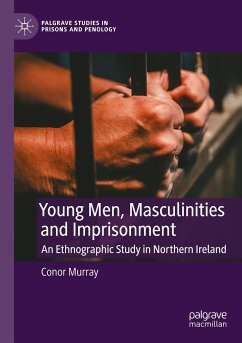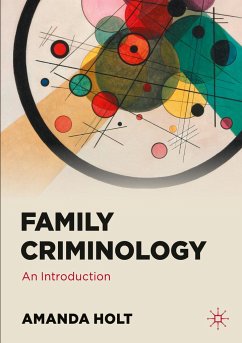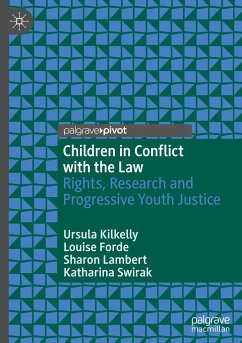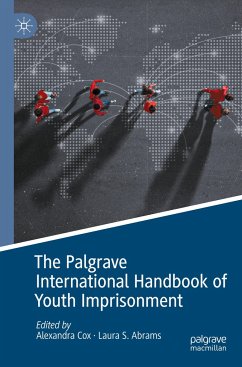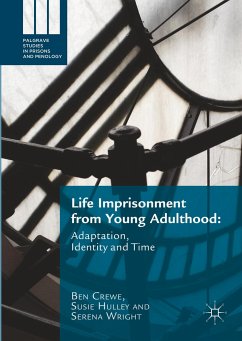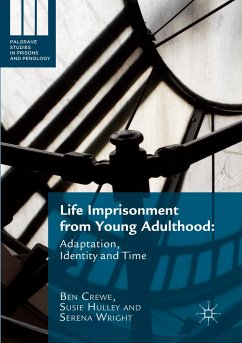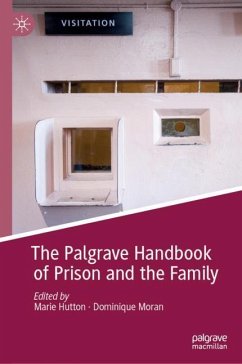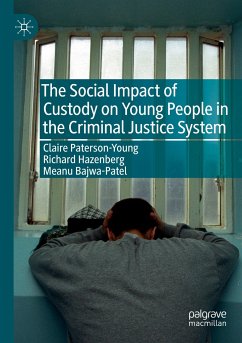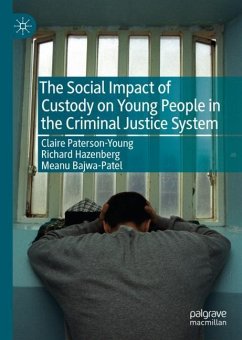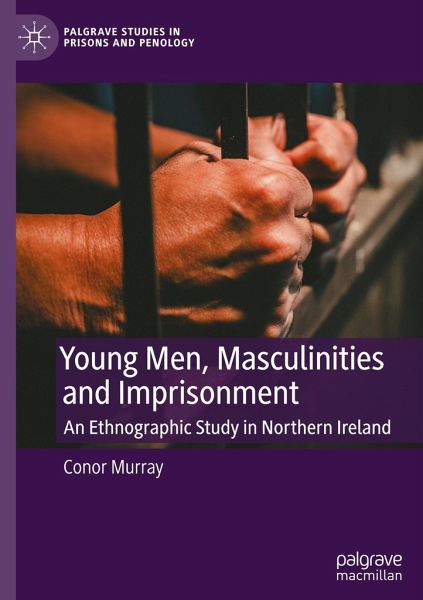
Young Men, Masculinities and Imprisonment
An Ethnographic Study in Northern Ireland
Versandkostenfrei!
Versandfertig in 6-10 Tagen
98,99 €
inkl. MwSt.
Weitere Ausgaben:

PAYBACK Punkte
49 °P sammeln!
Given the over-involvement of young men in crime and young men's disproportionally high rates of reoffending, it is surprising that more research has not explored young men's experiences of prison. This book is based on the findings of a nine-month ethnographic case study of Hydebank Wood College, a young men's prison in Northern Ireland. It seeks to explore the complexity of gender construction and masculine performance during young adulthood, while also exposing and dissecting the turbulent social life of a young men's prison.In examining these themes, the book takes account of the unique so...
Given the over-involvement of young men in crime and young men's disproportionally high rates of reoffending, it is surprising that more research has not explored young men's experiences of prison. This book is based on the findings of a nine-month ethnographic case study of Hydebank Wood College, a young men's prison in Northern Ireland. It seeks to explore the complexity of gender construction and masculine performance during young adulthood, while also exposing and dissecting the turbulent social life of a young men's prison.
In examining these themes, the book takes account of the unique social, economic, and political factors that impact young men in communities in Northern Ireland, paying particular attention to their feelings of powerlessness, marginalisation, and vulnerability, and the construction of identity in cultures defined by territorialism, violence, masculine stoicism, and an anti-authority code of 'honour'. The book follows the formation of masculinitiesthrough the prison gate and considers how the penal environment contributes to the continual shaping young men's identities. The book also adopts Gambetta's concept of 'signalling' to examine how young men use different practices, such as language and embodiment, to communicate masculinity to their wider social audience. At the same time, it also considers the reluctance of young men to communicate about their sources of vulnerability.
In examining these themes, the book takes account of the unique social, economic, and political factors that impact young men in communities in Northern Ireland, paying particular attention to their feelings of powerlessness, marginalisation, and vulnerability, and the construction of identity in cultures defined by territorialism, violence, masculine stoicism, and an anti-authority code of 'honour'. The book follows the formation of masculinitiesthrough the prison gate and considers how the penal environment contributes to the continual shaping young men's identities. The book also adopts Gambetta's concept of 'signalling' to examine how young men use different practices, such as language and embodiment, to communicate masculinity to their wider social audience. At the same time, it also considers the reluctance of young men to communicate about their sources of vulnerability.





